Chesapeake Bay Retriever
The Chesapeake Bay Retriever is a dog breed that originated in Maryland and was bred as a hunting and retrieving dog that used to work with hunters in the Chesapeake Bay. It is quite clear how these dogs got their name.
These dogs are active, lively, and have plenty of energy which isn’t a surprise since they had to work in tough Maryland conditions. They can be rather stubborn and that could make them a bit harder to train so this is not a breed that is the best fit for new dog owners.
The Chesapeake Bay Retriever is often called Chassie and is believed to be a descendant of two Newfoundland puppies so it is no wonder that these dogs absolutely love water. They use their strong tails as rudders and the tail eases their navigation in tougher conditions.
Chessies have been prized as great hunting dogs for ages and these days they are used more often for dog sports such as field trials, rallies, or agility. They are not the best competitors for obedience as they do not like the repetitive nature of the sport and training. For these dogs to be happy, you need to come up with new and creative ways to keep them occupied. They easily get bored and boredom usually leads to the development of bad behavior.

Height:
21-26 in (53-66 cm)

Weight:
55-80 lb (25-36 kg)

Origin:
USA

Life Expectancy:
10-13 years
Dog Breed Characteristics
Grooming
Chesapeake Bay Retriever has a short and harsh topcoat and a dense and wooly undercoat. Their coat serves as isolation and it allows them to hunt in many different weather conditions.
Chessie coat colors:
- Any color of brown
- Sedge or dead grass is acceptable
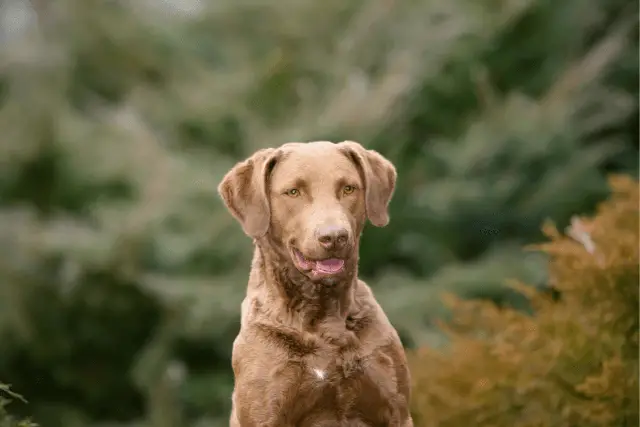
The rest is basic care; trim their nails when needed (if they don't wear them down naturally), brush their teeth weekly to prevent tartar buildup and bacteria development. Regularly check their ears for any sign of redness or a bad odor that can indicate an infection. You can wipe their ears with a cotton ball dipped into an ear cleaner.
The key for your dog to get used to all things mentioned above is to start early with them. Make a positive experience for the dog, full of praises and rewards, and you can be sure your dog will enjoy all these things when they grow up.
Exercise
Chesapeake Bay Retriever is a highly energetic and active breed. They were bred to work all day, so these dogs need a lot of daily exercise. These dogs need an active lifestyle to be happy. They love to be outside and be part of the action, whether running and chasing balls, playing, jumping, or jogging.
If you are thinking about getting a Chesapeake Bay Retriever, make sure you have enough free time and energy to spend it outside playing and training your Chessie. If your schedule can’t allow you that, consider getting some less active breed. Except for daily activity, these dogs also need consistency.
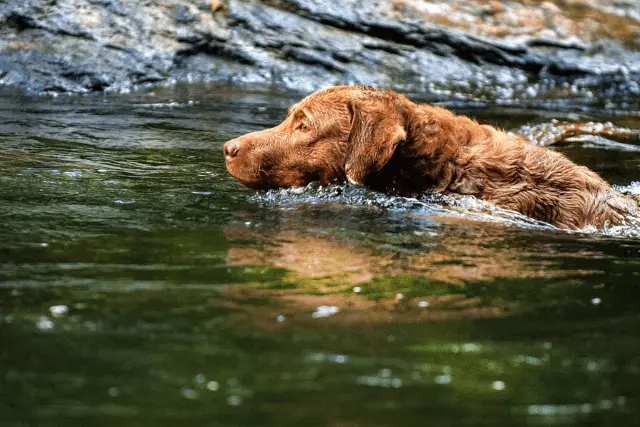
Chessie Personality
Like any other dog breed, the Chessie requires early socialization. It is essential to ensure that your dog doesn’t become shy or aggressive. Expose your dog to many different people, dogs, sights, and situations to secure a well-rounded dog.
Socialization can even be done at home. Dress differently; wear glasses, hats, and baggy clothes so your puppy can’t recognize you right away. Teach your puppy to stay alone for a while and not make a fuss about it. It is the best way to make sure your puppy will grow up to be a stable, confident, and well-behaved dog.
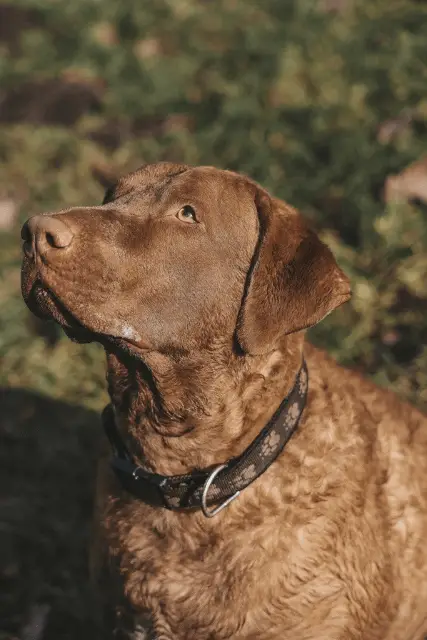
Chessie and kids
Early socialization and proper training can teach them to behave even when children are around. Their temperament makes them more suitable for families with older children. If you train and socialize your dog well, your children will get a great playing partner that has plenty of energy. These dogs can play for hours upon hours without getting tired or bored. Your children will also get a guard dog that is naturally suspicious of strangers, and you can be sure that they will warn you about any potential dangers approaching your kids.
They can become overly protective and territorial over their toys. Children should never be left alone with any dog, no matter what breed. You should make sure that your children understand how to approach dogs of this breed and understand how to interact and play with them properly.
Other animals
These dogs can get along well with other dogs and animals if raised together from an early age. However, they can be aggressive toward strange dogs they meet outside.
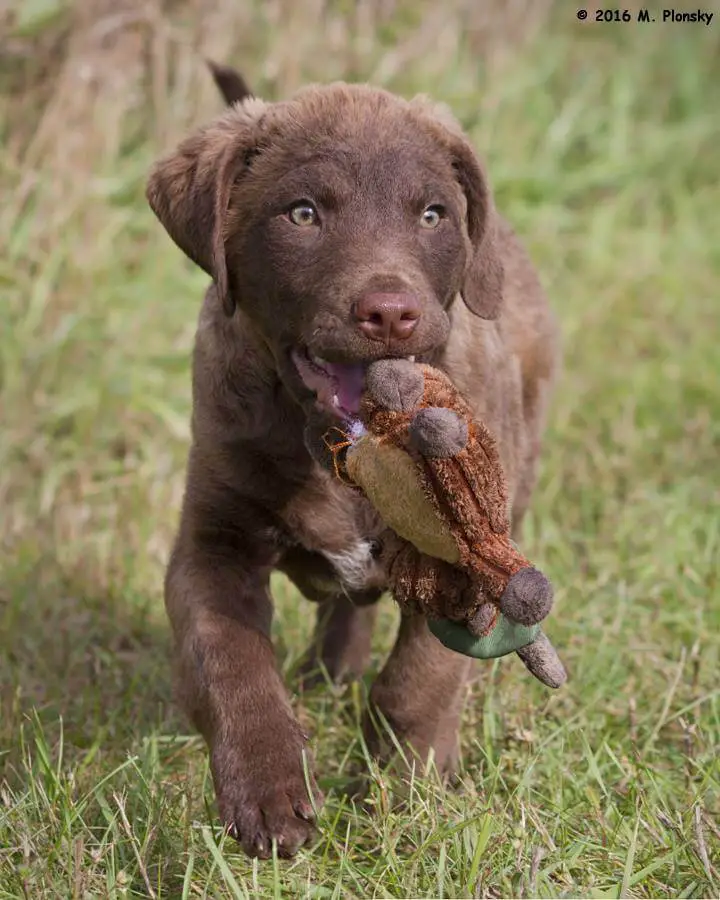
Health problems
The Chesapeake Bay Retriever is generally considered a healthy breed, but they are prone to health issues and concerns like any other dog breed. These dogs have an average lifespan of 10-13 years.
When getting any breed, the breeder must show you the health tests they have done for their breeding dogs. Dogs must be adequately tested because taking a chance and hoping that the puppy’s parents are healthy is a risk no one should ever take. Only healthy dogs should be bred because that is the only way to ensure that bloodlines will remain healthy and without any problems. Health problems associated with this breed are;
- Epilepsy - Brain problem causing mild to severe seizures.
- Hip dysplasia - Genetic problem affecting hips resulting from an improperly formed hip joint.
- Progressive Retinal Atrophy - Group of diseases that affect the retina and cause it to deteriorate over time.
- Von Willebrand's Disease - A problem with blood clotting can affect humans and dogs.
- Gastric Torsion - Also known as bloat. A dangerous condition that causes the stomach to twist (torsion).

Chesapeake Bay Retriever breeders
Before you start searching for a registered Chesapeake Bay Retriever breeder, make sure that this is the right breed for you. These are active hunting dogs that require a strong and consistent owner that will know how to handle such a dog. They need to have enough daily exercise, and it would be ideal to have a decent-sized body of water, such as a lake or pond near your household. These dogs can be great companions to families that will know how to treat them right.
Buying a dog from a responsible breeder will cost you more money, but you can be sure that you will get a healthy puppy. When you bring your new puppy home, start with the training and socialization immediately. By doing so, you will end up with a well-behaved dog whom you can trust. Provide him with enough daily exercise for him to be happy. If you devote your time and energy to this dog, you can be sure that you will end up with a companion for life.
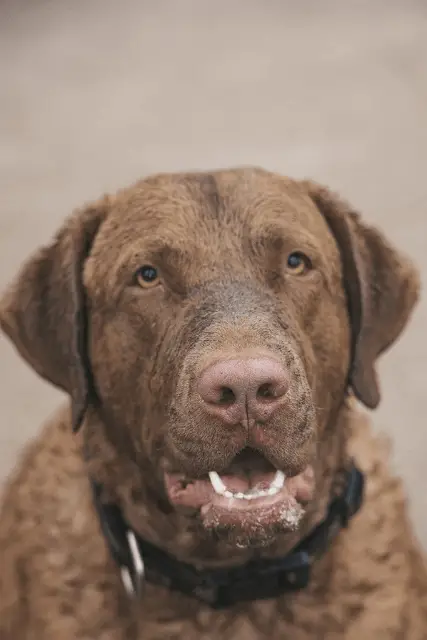
If you are unsure whether this is the breed for you, check out this FREE GUIDE that will help you decide which dog breed is right for you.
SEARCH CHESAPEAKE BAY RETRIEVER BREEDERS
World Dog Finder team

Updated at31.08.2023.
Breed History
Chesapeake Bay Retriever is a breed originally from the US. These dogs were developed into the version we know today by 1884. They were known for their excellent work abilities in the Chesapeake Bay area. The club of the Chesapeake Dogs was formed in 1918.
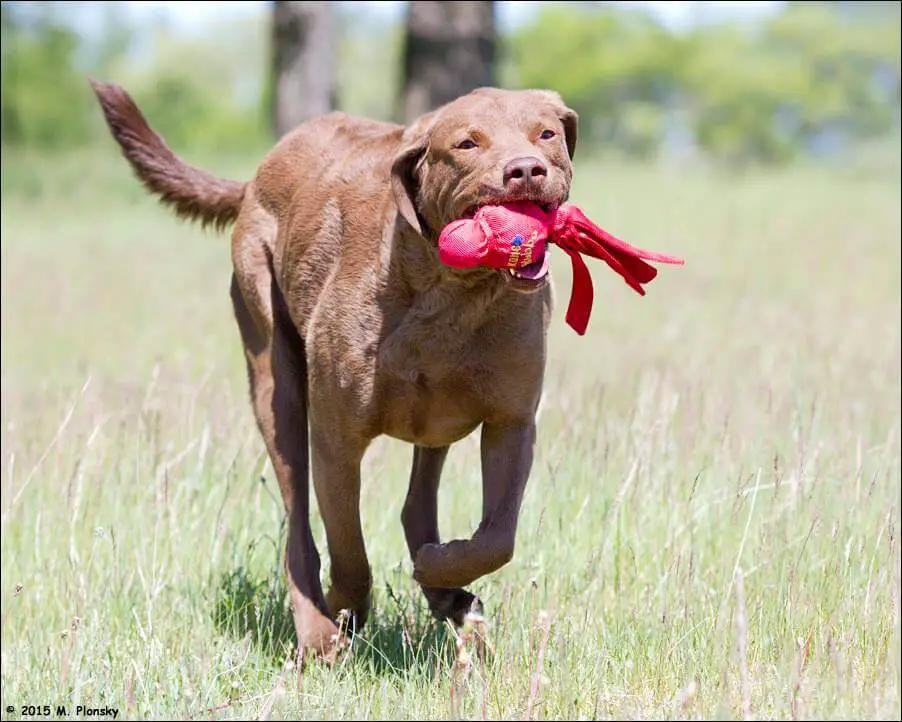
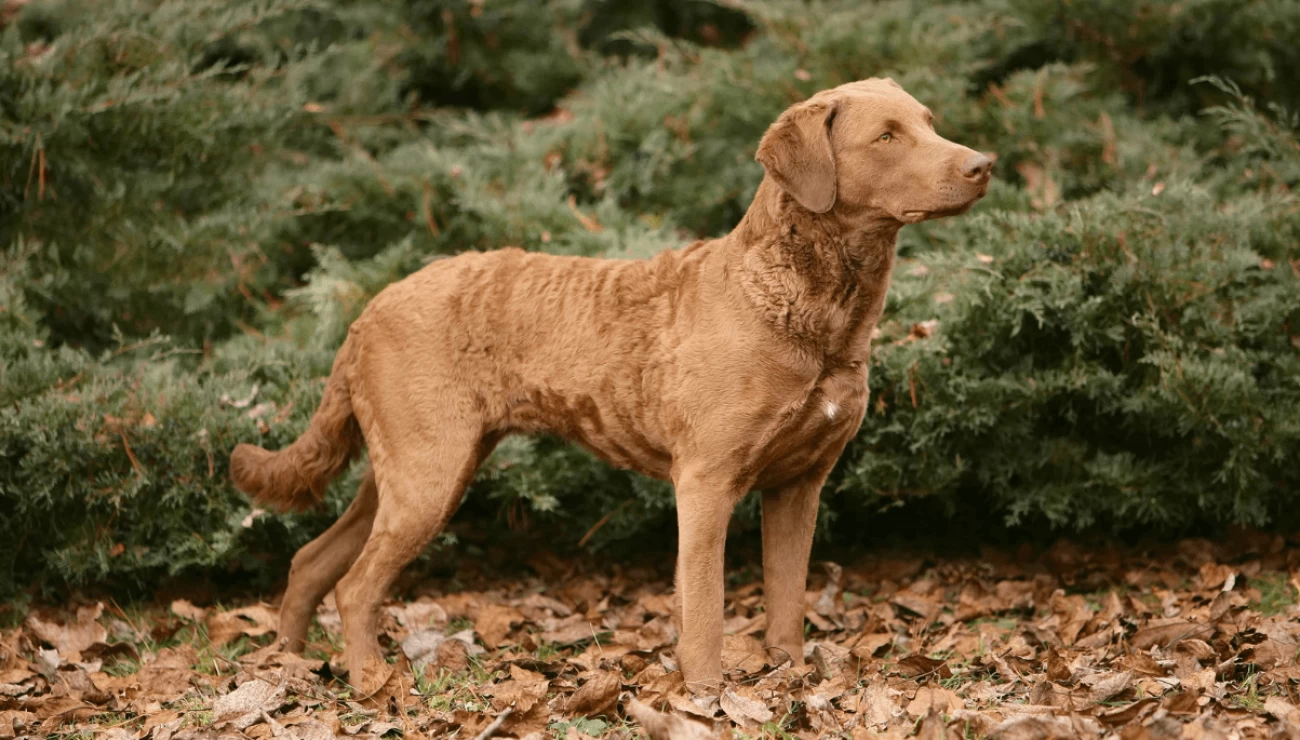
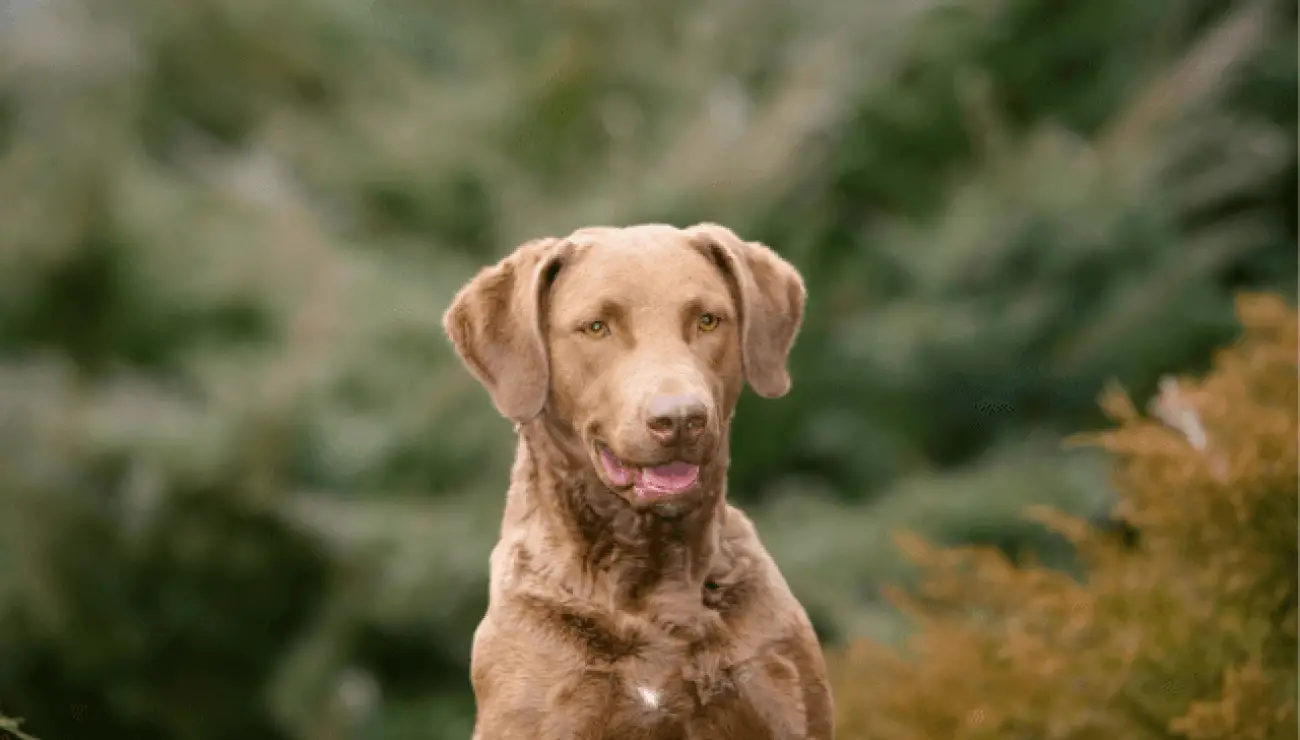
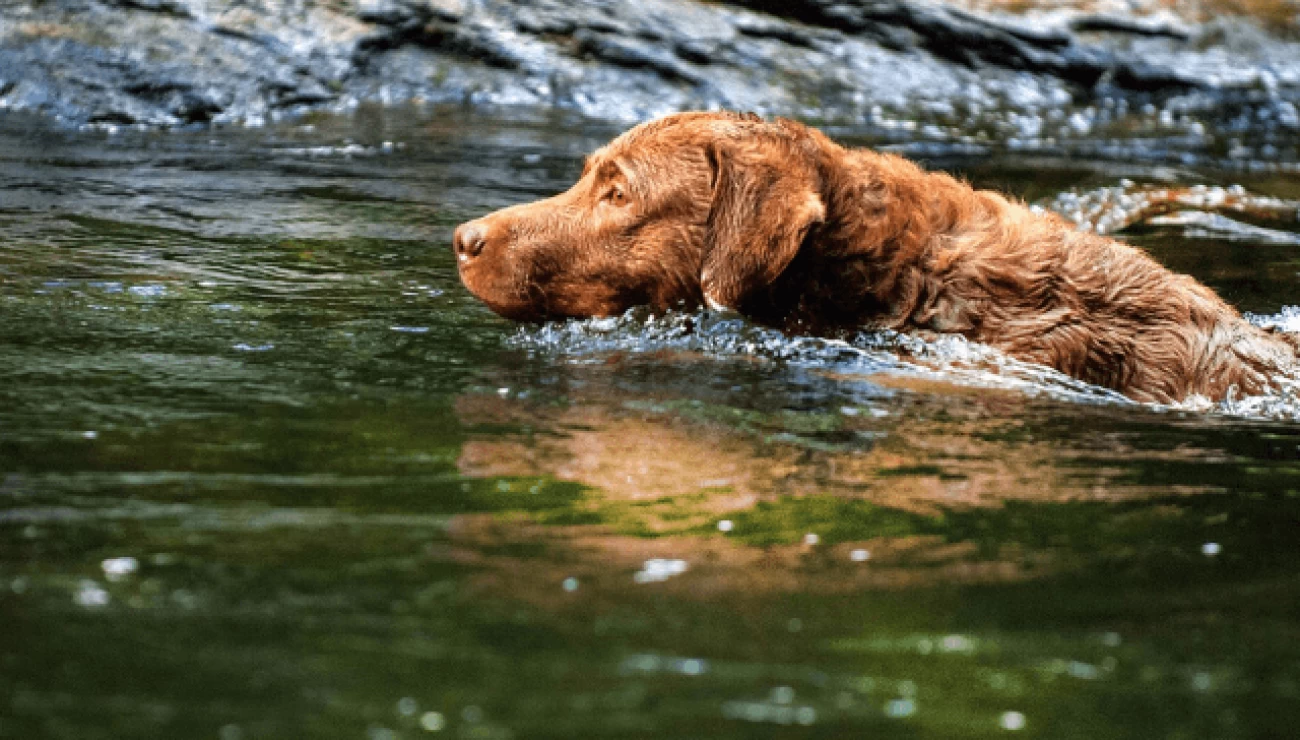
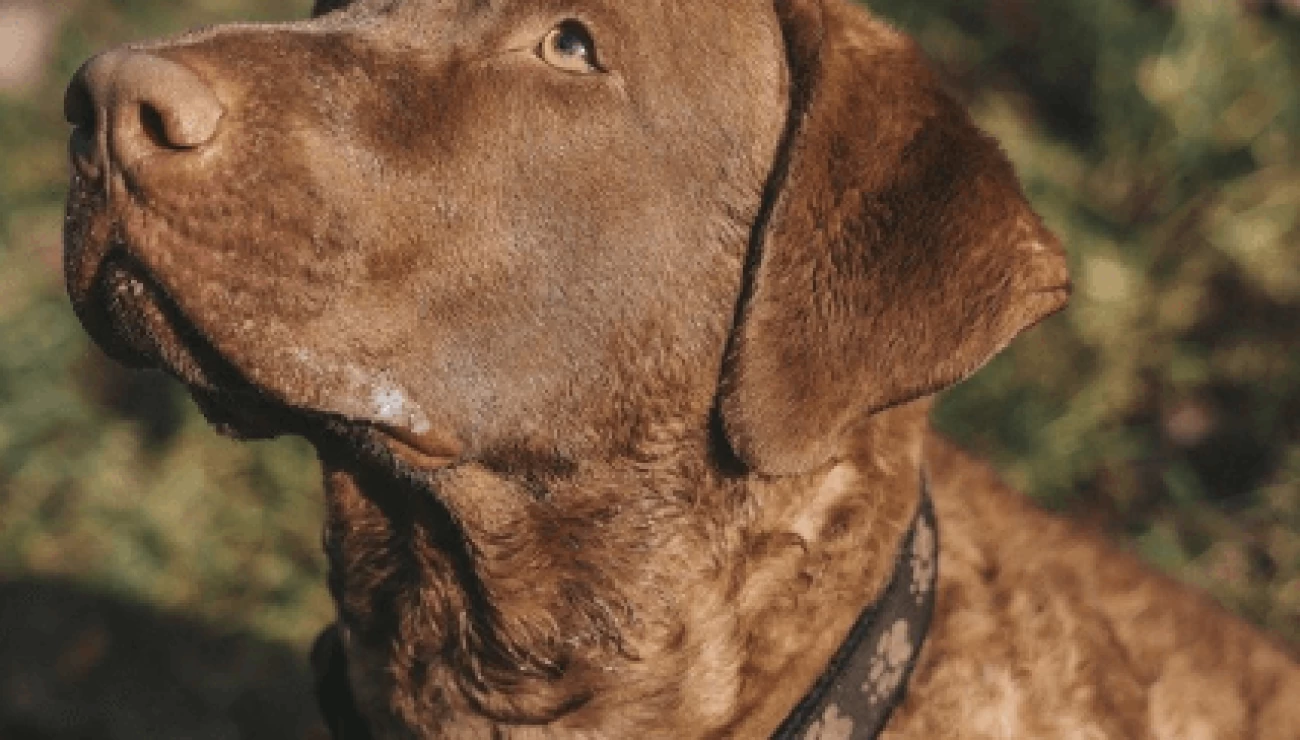
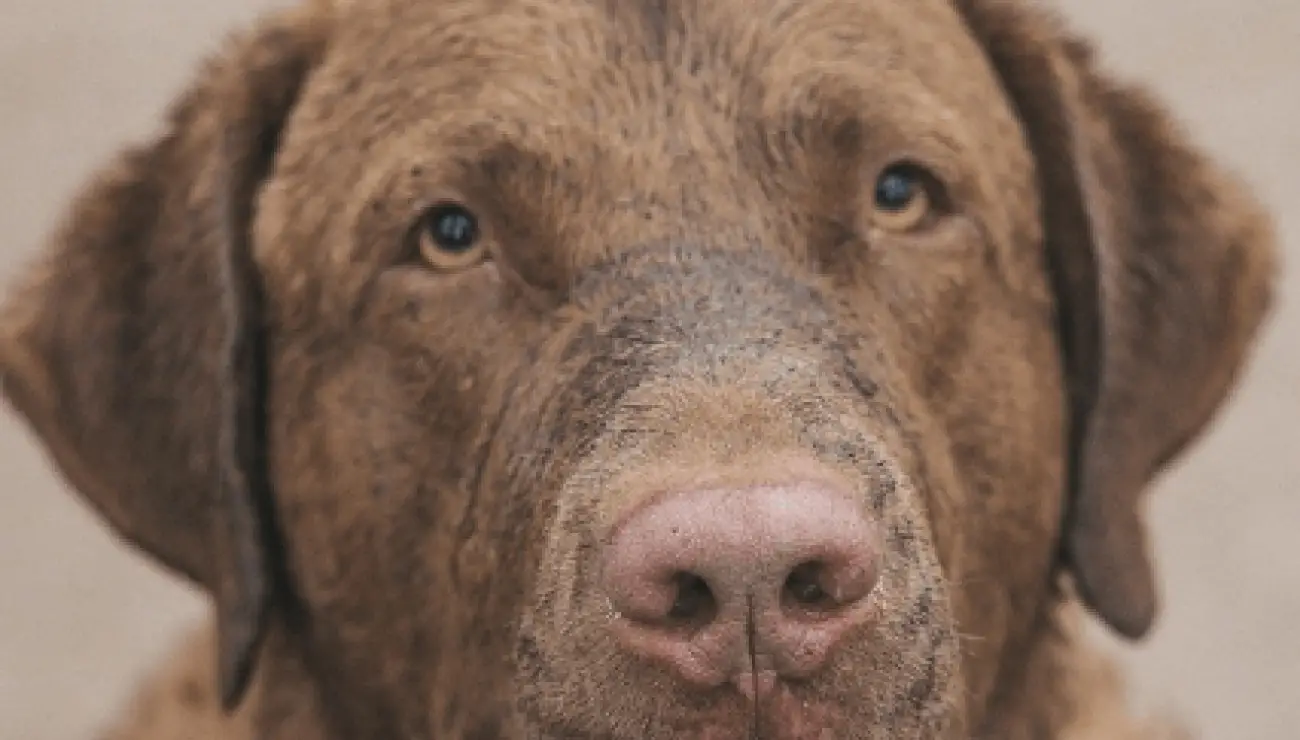

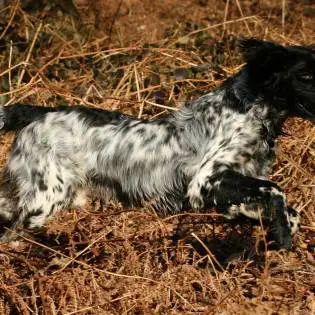
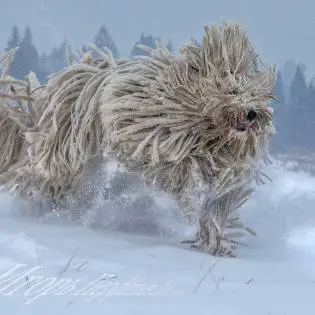





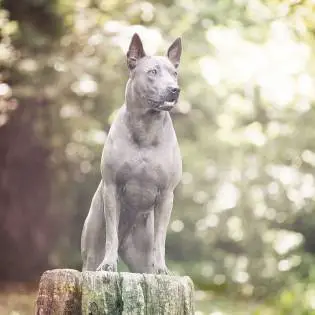


Share